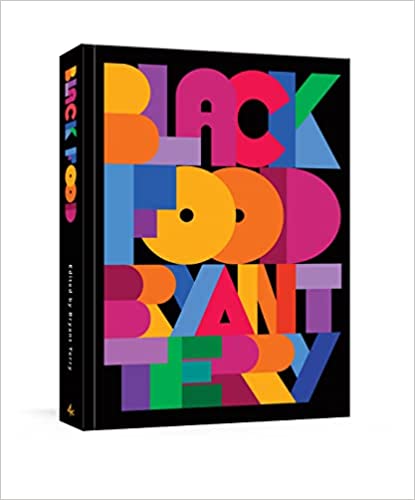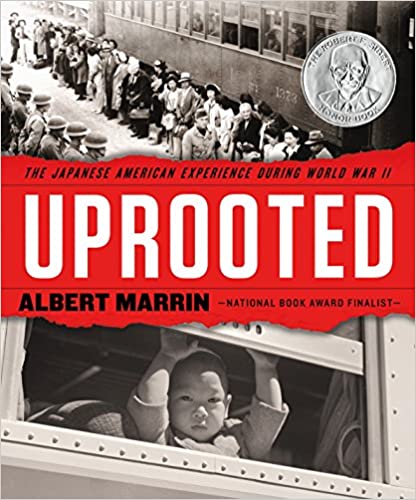
When I sent my first novel to a beta reader, she flagged several passages, including the one below, as “racist.” The brickwork discussed in this passage still stands at Fort Gaines—built in 1821—on Dauphin Island off the coast of Alabama. My intent had been to convey my respect and admiration for the craftsmanship of the slaves who laid the bricks. After receiving my beta reader’s comments, I rewrote the passage to both remove the bias and to focus the narrative on one of the main themes of the book which is: truly seeing the many choices in front of us and choosing the right path. Lloyd is African-American and Anthony (the speaker) white. Both are twelve years old.
The Original Passage:
We inspected the fort’s buildings, the bakery, the latrines, and the armory. “Hey, these were built by slaves,” Lloyd said, reading a plaque.
“Yup, look at that arch.” I (Anthony) pointed upward at the gorgeous brickwork. “Dad took me here when I was five. I remember him holding me up, showing me this brickwork saying, ‘Son, you’ve got to respect a man who does an excellent job, even when he’s a slave. He didn’t get paid, in fact he probably got whipped, but he did a good job anyway, obviously took pride in his work’.”
Rewritten to (hopefully) more accurately portray Lloyd and the African-American experience:
We inspected the fort’s buildings, the bakery, the latrines, and the armory. “Hey, these were built by slaves,” Lloyd said, reading a plaque.
“Look at that arch.” I (Anthony) pointed upward at the gorgeous brickwork. “Why do you suppose the slaves did such a good job? If I’d been a slave, I would have died rather than build my master a fort.” I drew my knife. “I’d have taken some of them with me, too.”
Footsteps came our way. Quick, I sheathed the knife and pulled my sweats down over it. Two little kids, one chasing the other, raced by.
Lloyd ran his hand over the curving side of the archway. “My daddy told me that slavery wasn’t homogeneous.”
“You mean like milk?”
“No, that’s homogenized.”
“Oh.”
“What he meant was that each person experiences slavery differently. One person might escape. Someone else might get depressed and never want to do anything.”
“Are we still talking about bricks?”
Lloyd gave me a mean look. “My daddy had a boss that always took credit for my daddy’s work.”
“Why didn’t he complain to the boss’s boss?”
“They were brothers.”
“He should have quit.”
“He couldn’t quit. He needed the money. So, he decided to keep doing the best job he could.”
“Why? That was just playing into his boss’s hand.”
Lloyd shook his head, “Don’t you see? It wasn’t about his boss. That’s what my daddy figured out. He could choose who he worked for. So, he decided to work for God.”
“What?”
“Anthony, I don’t know why those slaves did a good job. But I guess I’m hoping that they did it for God.”
“Lloyd, these bricks were laid in 1821. All those slaves probably died slaves. They were never freed, they never even got paid, and their masters got all the credit.”
“Did they?”
I glanced over at him.
“The Old South is gone, Anthony. But hurricane after hurricane this fort has survived.”
I looked again at the beautiful brickwork.
Lloyd whispered, “Maybe God did see.”
Your comments and suggestions are welcome. I’d like to get this right.
- Author Bio
- Recent Posts
- Books
-
October 31, 2025
I love runways and bangles and color and clothes.
With a sheet and two holes, I was ghastly not Vogue. -
November 25, 2024
The Lyrical Language Lab is having a Rhyming Poetry Contest for kidlit.
-
September 25, 2024
I decided to enter the KidLit Chuckle Challenge. I had 200 words to make someone laugh. In addition, I was required to use two of the six writing prompts given. I chose ‘Avocado the Penguin’ and ‘Broccoli.’ My entry is below. The italicized illustration note does count toward the total 200 words.
-
-
July 25, 2024
Obsession is my natural state.
As an undergraduate in Electrical Engineering at Texas A&M University, I was required to take a Mechanical Engineering course where we analyzed the forces in a truss.

Related
Affiliate Links
A Slice of Orange is an affiliate with some of the booksellers listed on this website, including Barnes & Nobel, Books A Million, iBooks, Kobo, and Smashwords. This means A Slice of Orange may earn a small advertising fee from sales made through the links used on this website. There are reminders of these affiliate links on the pages for individual books.
Search A Slice of Orange
Find a Column
Archives
Featured Books
BLACK FOOD: STORIES, ART & RECIPES FROM ACROSS THE AFRICAN DIASPORA
Beautiful, rich, and groundbreaking . . .
More info →UPROOTED: THE JAPANESE AMERICAN EXPERIENCE DURING WORLD WAR II
A Publishers Weekly Best Book of the Year, A Booklist Editor's Choice
More info →DARK WINE AT THE GRAVE
Henry never thought he’d turn someone vampire. Especially someone who wasn’t his mate…
More info →Newsletter
Contributing Authors
Search A Slice of Orange
Find a Column
Archives
Authors in the Bookstore
- A. E. Decker
- A. J. Scudiere
- A.J. Sidransky
- A.M. Roark
- Abby Collette
- Alanna Lucus
- Albert Marrin
- Alice Duncan
- Alina K. Field
- Alison Green Myers
- Andi Lawrencovna
- Andrew C Raiford
- Angela Pryce
- Aviva Vaughn
- Barbara Ankrum
- Bethlehem Writers Group, LLC
- Carol L. Wright
- Celeste Barclay
- Christina Alexandra
- Christopher D. Ochs
- Claire Davon
- Claire Naden
- Courtnee Turner Hoyle
- Courtney Annicchiarico
- D. Lieber
- Daniel V. Meier Jr.
- Debra Dixon
- Debra H. Goldstein
- Debra Holland
- Dee Ann Palmer
- Denise M. Colby
- Diane Benefiel
- Diane Sismour
- Dianna Sinovic
- DT Krippene
- E.B. Dawson
- Emilie Dallaire
- Emily Brightwell
- Emily PW Murphy
- Fae Rowen
- Faith L. Justice
- Frances Amati
- Geralyn Corcillo
- Glynnis Campbell
- Greg Jolley
- H. O. Charles
- Jaclyn Roché
- Jacqueline Diamond
- Janet Lynn and Will Zeilinger
- Jaya Mehta
- Jeannine Atkins
- Jeff Baird
- Jenna Barwin
- Jenne Kern
- Jennifer D. Bokal
- Jennifer Lyon
- Jerome W. McFadden
- Jill Piscitello
- Jina Bacarr
- Jo A. Hiestand
- Jodi Bogert
- Jolina Petersheim
- Jonathan Maberry
- Joy Allyson
- Judy Duarte
- Justin Murphy
- Justine Davis
- Kat Martin
- Kidd Wadsworth
- Kitty Bucholtz
- Kristy Tate
- Larry Deibert
- Larry Hamilton
- Laura Drake
- Laurie Stevens
- Leslie Knowles
- Li-Ying Lundquist
- Linda Carroll-Bradd
- Linda Lappin
- Linda McLaughlin
- Linda O. Johnston
- Lisa Preston
- Lolo Paige
- Loran Holt
- Lynette M. Burrows
- Lyssa Kay Adams
- Madeline Ash
- Margarita Engle
- Marguerite Quantaine
- Marianne H. Donley
- Mary Castillo
- Maureen Klovers
- Megan Haskell
- Melanie Waterbury
- Melisa Rivero
- Melissa Chambers
- Melodie Winawer
- Meriam Wilhelm
- Mikel J. Wilson
- Mindy Neff
- Monica McCabe
- Nancy Brashear
- Neetu Malik
- Nikki Prince
- Once Upon Anthologies
- Paula Gail Benson
- Penny Reid
- Peter J Barbour
- Priscilla Oliveras
- R. H. Kohno
- Rachel Hailey
- Ralph Hieb
- Ramcy Diek
- Ransom Stephens
- Rebecca Forster
- Renae Wrich
- Roxy Matthews
- Ryder Hunte Clancy
- Sally Paradysz
- Sheila Colón-Bagley
- Simone de Muñoz
- Sophie Barnes
- Susan Kaye Quinn
- Susan Lynn Meyer
- Susan Squires
- T. D. Fox
- Tara C. Allred
- Tara Lain
- Tari Lynn Jewett
- Terri Osburn
- Tracy Reed
- Vera Jane Cook
- Vicki Crum
- Writing Something Romantic
Affiliate Links
A Slice of Orange is an affiliate with some of the booksellers listed on this website, including Barnes & Nobel, Books A Million, iBooks, Kobo, and Smashwords. This means A Slice of Orange may earn a small advertising fee from sales made through the links used on this website. There are reminders of these affiliate links on the pages for individual books.


























































I didn’t see that re-write coming and it blew me away. I think complex, sensitive topics present best as dialog. Beautiful and illuminating.
Thank you, Jenny. I so appreciate comments!
Take care,
Kidd
Nice rewrite, Kidd!
Thanks!
Kidd, I’d like to offer my opinion. Truly I don’t see what you wrote as racist, not version one nor the rewrite. But for this 65 yr old African American woman, I see in your writing what I see in so many others who write about races and cultures other than their own. People write what they know. While your intentions are good, there is still a clear bias. You used the word slave or slavery seven times in this section alone. For me that’s insensitive since you never referenced the builders as men, and skilled men at that. Then, I can’t understand why you pose the question why slaves would do such a good job. Did you consider pride in their work as a reason why? This is a teachable moment for Lloyd that you’re missing. And what is written on the plaque that let Lloyd know the builders were slaves?
This passage does have potential, but it misses the mark with the intent you describe.
I do appreciate you asking for help. Email me if you would like further input.
Take care and happy writing. Barbara.
Chigirl2lb@yahoo.com
Hi Barbara,
Obviously, I still need to work on this passage. Thank you for pointing me in the right direction. Empathy, real empathy, truly feeling and experiencing life from another’s point of view is, I believe, an impossible goal. But I can do better. I’ll give it another try.
Take care,
Kidd
Best wishes to you, Kidd. You’ll get it.
The issue pretty much rocked the venerable RWA off it’s foundation earlier in the year. An author wrote a period piece from a century ago that included references to what actually happened during that time period. A few people took offence.
We live in a sensitive time, and the definition of “racist” has taken on a broader scope. It’s my hope this sensitivity eventually tempers for historical fiction/non-fiction in favor of seeing it as a reminder that certain behaviors from a time long passed have no place in modern society.
As a member of RWA, I can tell you that you’ve completely misunderstood the problem. This was about way way more than one book and a few people. We live in a time were people of color and other marginalized groups are tired of being told they are “sensitive.”
This issue is difficult for me. I was taught that toleration was important, not because racism is in any way acceptable, but because human beings are so completely incompetent when it comes to judging each other. We don’t know the life another has led. We do not even truly know why another person wrote or spoke as they did. Often we miss the intent of another’s words, either because we listen with bias, or because they do not speak or write well. Approximately 70% of all human communication is missed or misunderstood, and yet we dare to judge another’s words as racist. I was taught toleration, not so that I would tolerate racism, but so that I would more truly listen, first giving the other person the benefit of the doubt. As an author hoping to speak clearly to others, I understand that I must be particularly sensitive. However, I hope that my readers will view my book as a whole. I hope they will see the intent of my work, rather than shout abuse at me when I don’t get it exactly right.